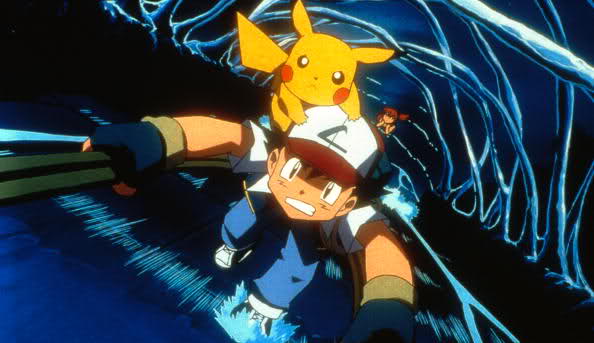I am 30 years old the first time the world goes black.
I look at my fiance, who is sitting at the kitchen counter, reading the Sunday New York Times. I am on the couch, doing the crossword puzzle. I've been obsessed with crossword puzzles for the last two weeks.
"Personification of Peace?" I ask Jess. "Five letters?"
She's silent. She doesn't move, in fact. For a moment, I can see the light actually flowing into the room, like honey. Everything smells like oranges. My palms sweat. And, most inexplicably, I feel the passage of time. Not deja vu, not the slow-motion of adrenaline reactions, but I can sense time as a tangible thing -- as if I am moving through the future, step by step.
Blackness.
I wake in the hospital. Weeks of tests, and numerous incidents of crazy hallucinations, blackouts, and uncontrolled spazzing-out later, the greater Boston medical community tells me what 20 minutes on Google had suggested -- I have epilepsy, like roughly 1% of the world's population. It turns out, I'm a lucky one; for years and years, I take my medication, and I'm fine.
PokePanic
On December 16, 1997, untold numbers of Japanese Poke-Otaku and small children sit down to watch a new episode of Pokemon airing on network television. Twenty minutes into the episode, Pikachu lays down some serious science on incoming missiles with his notorious Thunderbolt attack. The resulting explosion blossoms to full-screen over a six-second period, flashing red and blue.

Six-hundred eighty-five people are in ambulances within the hour. CNN runs the headline "Cartoon-based illness mystifies Japan." Nintendo's stock price drops 5% the next morning, and the Pokemon TV show goes on an immediate four-month hiatus.
Like most Americans, I dismiss this as "wacky Japanese news."
The Strobe Light of Sauron
I am 40 years old when the demon in my head comes crawling back.
Having been stable for so long, I've backed off my medication entirely. Like many, many people with epilepsy, I have no real causes for my doctors to pinpoint -- no black spot on my MRI that they can go in and cut out, no cancer, no brain damage. I occasionally dip briefly into that dreamlike pre-seizure state called an "aura," but it always passes fast. I have bouts of hypergraphia -- compulsive writing or crossword puzzle-solving -- which turn out to be connected to my particular kind of epilepsy. But it's a footnote in my otherwise happy life.
I'm sitting in the basement, playing beta content for Turbine's The Lord of the Rings Online: Mines of Moria. I'm running with a group of friends, most of whom are other journalists working up website previews. I have the lights off, my headphones on, my new 24" monitor as close as I can stand it. I've installed two new high-end SLI video cards for the occasion, and I'm running with everything maxed out on DirectX 10. It's gorgeous.

We're in a pivotal battle, deep underground, surrounded by deep-things and lava-giants. That's when one of my video cards dies. My screen pulses, perhaps a dozen times a second. Red. Black. Red. Black.
"Uh, guys..." I say to my Ventrilo-mates. "I'm down."
My heart races. I pull off the headset.
I wake up to the screen still flashing. I turn the monitor off.
"Damn," I think. "Here we go again."


